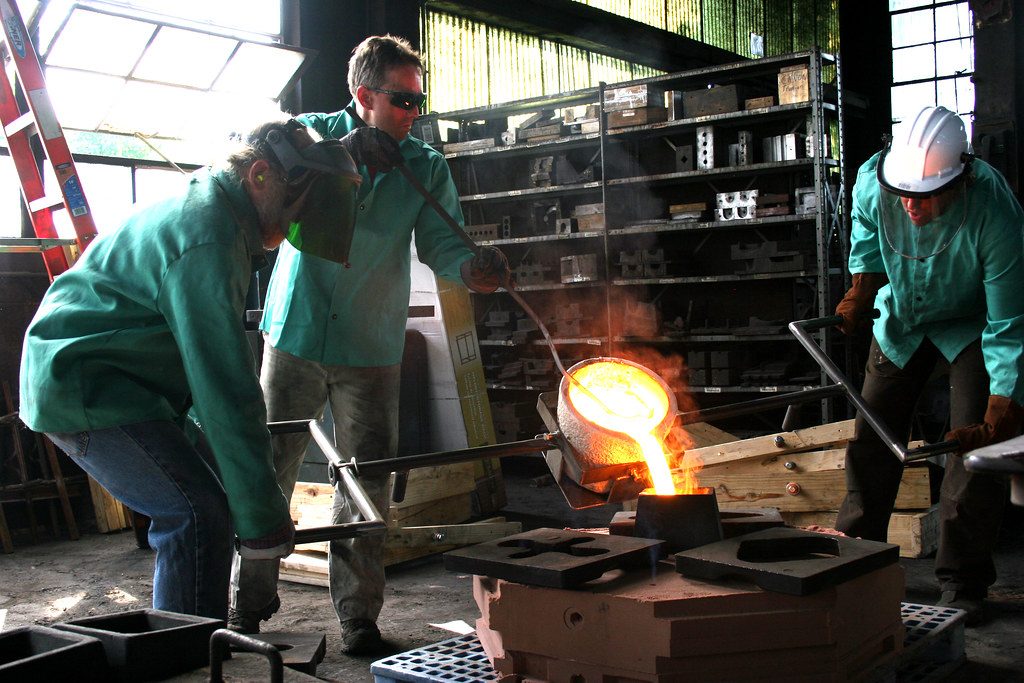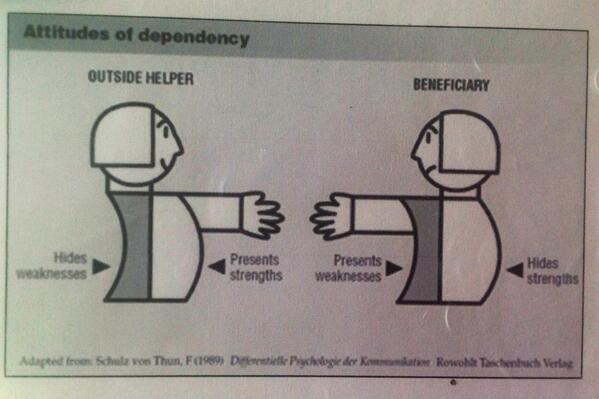Bring Education Up-to-date by Breaking Moulds

We need to stop talking about the 21st Century as if it is the future, we are already in it.
We need to stop trying to address new situations and challenges with old models and moulds.
If we are in any way serious about moving education forward, or even just catching up, we need to be in the business of breaking moulds. If we keep using the same old moulds, it doesn’t matter what we put into them… the end product will always be the same.
Here are some educational moulds that could do with being broken:
- Leadership – Leadership roles in schools tend to be very restrictive as there is usually only one possible way to advance if we are ambitious and wish to expand our scope of influence. The career path usually takes us further away from kids, further away from learning. This will inevitably make leaders less relevant! Why not break a few of those moulds and create alternative career paths for people so they can continue to be their best?
- Homework – For all the talk about homework, there is still remarkably little change. Thousands of teachers are still handing out homework to thousands and thousands of students that is still in the same mould as it was 5, 10, 15 and 20 years ago. We have moved on so…. let’s move on. We could even go so far as to break that mould and then simply not replace it!
- Reports – Another mould that we continue to use even though we know it isn’t the right mould. Break it, rethink it, redesign it, discard it… anything but carry on with the same.
- Classrooms – It is such an uncomfortable feeling to walk into a classroom (for any age) and find it to resemble classrooms we endured when we were kids. It is so refreshing, on the other hand, to walk into a classroom that breaks those moulds. Imagine a classroom with different seating options, different shapes and heights of tables, different lighting options, different smells and sounds… Teachers need to have a daily routine of asking themselves “would I like to be a student in my own class?”
- End-of-year class parties – just adding this as our school year comes to an end and I have been around every classroom and found mountains of junk food, packaging, throw-away cups and plates and wide-eyed over-indulged children who ate lunch only an hour beforehand. Time to think again people! Have a pool party like we did in Year 6 at NIST, have a class sports day, go out somewhere, bring someone in to do something different with them. Or, at the very least, cancel lunch on that day.
- Technology – Funny isn’t it, most of us actually think 21st Century leaning actually means using technology. We are mistaken. It actually involves, but doesn’t mean, using technology to make learning different to how it was before, not simply replicating what is used to be like but using a computer or other device instead. Use technology to break a few moulds, then it may serve a purpose. Be careful, we are in danger of creating some rather dull new moulds in the way we currently use technology.
- Committees – Instead of creating a few of those dull old committees and populating them with people who have to be in a committee, how about using an inquiry style of leadership and letting teachers determine what needs to be done to improve their schools and then empowering them to take action and make those improvements happen. Teachers who feel empowered to create change have a much better chance of nurturing students who feel empowered to create change.
- Timetables – The fragmentation of the school day is often done with little thought about the flow of learning or the time needed for genuine inquiries to take shape. Discrete lessons, certainly in primary education, may be close to obsolete. In fact, in my teaching practice over the last few years, I would struggle to give an example of a lesson that actually ended – many began, many had middles, but I can’t think of any that had an end. And, I wouldn’t want them to!
- Meetings – Any time any person is running any meeting, they should consciously try to make it unlike a meeting. This is really hard, the meeting is a very strong mould! But, if we can just approach them with the determination to chip away at the mould we will start to create something different.
- Professional development – Throw some money at it, get on a plane somewhere, sit and listen to someone, take away one or two things, implement one of them, share nothing. All too often, PD falls into that trap. Great for getting around the world, meeting people and making connections… don’t get me wrong. Hopeless for moving a school forward. Even bringing in big names and filling rooms with teachers can sometimes have little or no impact. Good professional development should have a sustainable impact on a school’s culture of learning and to do so it needs to be dynamic and multi-faceted. A model that we are experimenting with and getting a lot of success is bringing in practitioners, people who still teach, and setting them up to have an effect on the teaching and learning in the school in multiple ways – team-teaching, demonstration teaching, helping with planning, working with parents etc… there’s lots of ways to do it. Give it a try!
- Learning – Yep, even learning is stuck in a type of mould. While doing a teacher appraisal today, I snapped a photo of this image that was on top of one of my colleague’s files – it pretty much represents the mould of teacher/student relationship that is being broken and needs to be broken more!

Anyway… enough from me. What moulds are you breaking? What moulds would you like to break?
Image from OKFoundryCompany on Flickr: https://www.flickr.com/photos/jamesoneil/

One of the moulds we have managed to smash (which you don’t mentioned) is that of professional learning for teachers. No more one size fits all/ some/ none.
Sadly, for all the progress we have made at my school, many of the moulds you mention not yet been broken, generally due to …um… ‘constraints beyond out control.’ (We need to start our own school from the ground up based on shared beliefs)
Yes, I think I will add it to the posting actually. We are also taking on that new approach this year by bringing in Lana and others to work in the same way Chad and I did at Scopus. Thanks for reminding me!
PS I’m going to take the meeting one as a challenge. There isn’t much I can do about other people’s meetings (well, I did get told off for making origami out of a ridiculous structural diagram put forward in a meeting as if it was something that mattered in education), but I’m going to keep working on changing meetings that I facilitate. I already have a rule that my meetings need to relate to learning (our own, as well as the students’) – administrivia is communicated in other ways. I’m looking forward to transforming the learning team leaders meetings in new ways yet to be invented! Thanks for the inspiration 🙂
Changing the way you run meetings will naturally have an effect on the way others run theirs… eventually! Particularly if you deliberately suggest that the strategies you are using could be applied in other meeting contexts too. Bill and Ochan Powell are very good at this – every time they use a strategy in their workshops they encourage participants to think about how they could use that strategy in their own practices.
I also would like to see the reports mould broken or at least rethought. Parents, students and the school community can access information on student achievement through means other than the three-times-a-year traditional report. Think: classroom blogs, student blogs, better communication between parents and teachers, social media etc. In my experience, all that reports contain are a list of ~8 grades and maybe a couple of sentences from each high school teacher if that.
The sad thing is, in my MTeach unit on assessment and reporting I learnt the same traditional methods of reporting as teaching probably did decades ago. Next year when I start teaching, rethinking reports will be high on my agenda. Taking notes about individual students throughout the year will help in personalising, and actually celebrating student achievements outside of the academic realm. I think we need to ask ourselves, are reports as we know it obsolete?
It looks like we are about to break this mould next! Conversations this week are leading up to us “opening up” our assessments on units throughout the year, removing the need for reports to be a big (and often no longer relevant) deal two times a year (in our case). Using ManageBac, we’re thinking teachers can get in the habit of feeding information in regularly and then providing parents with access at certain times. The report can evolve throughout the year so that by the end there is a report “product” that satisfies the need for that kind of official document when moving schools and so on.